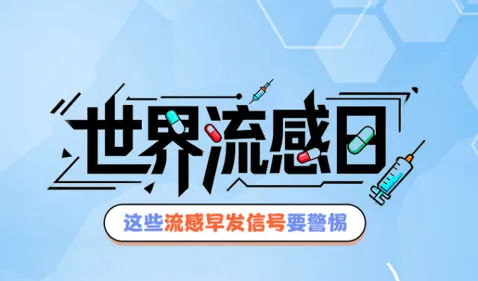Discover Nature's Antitumor Foods: Benefits of Mushrooms

Title: Discover Nature's Antitumor Foods: Benefits of Mushrooms Introduction: Mushrooms, especially shiitake and turkey tail, may have anti-cancer properties and improve immunity; choose reliable sources. Keywords: ['Anti-Cancer Diet', 'Healthy diet'] Author: Li Yushan, Deputy Chief Nurse of the Thoracic Surgery Department at the Cancer Hospital of the Chinese Academy of Medical Sciences. Zhang Huanhuan, Chief Nurse in the Department of Thoracic Surgery at the Cancer Hospital of the Chinese Academy of Medical Sciences. Zhang Na, Deputy Chief Nurse of the Thoracic Surgery Department at the Cancer Hospital of the Chinese Academy of Medical Sciences. Reviewer: Zheng Wei, Deputy Chief Nurse of the Thoracic Surgery Department at the Cancer Hospital of the Chinese Academy of Medical Sciences. Note: The cover image is from a copyright stock photo, and reprinting it may lead to copyright disputes.
Whenever mushrooms are mentioned, I can't help but think of Su Shi's lines in "A Poem Written for Master Chanliao in the Garden, Upon Finding Yellow Ear Mushrooms": "The old tree suddenly bears yellow ear mushrooms, an old friend also brings white ginger sprouts." Gathering and savoring the flavors of the mountains with close friends is indeed one of life's greatest pleasures. As a staple on our dining tables, mushrooms have captured countless taste buds with their unique flavors. Some venture into the mountains and forests after rain during specific seasons, kneeling in the grass, just for an unexpected encounter with nature's freshness. "Mushrooms" is a broad term, with names varying from region to region: southern regions often call them "jun," while northern areas typically refer to them as "gu." For a long time, mushrooms were classified as plants; however, since they lack chloroplasts and do not possess the ability to move like animals in search of food, they were later classified under the "Fungi kingdom" with a mode of survival known as "heterotrophic absorption" — meaning they derive nutrients by decomposing external organic matter. Structurally, mushrooms consist of numerous hyphae that cluster together to form a fruiting body. When mature, it appears as a small, open umbrella, intricately segmented into parts such as the cap, stalk, gills, and ring, showcasing delicate forms that create a miniature world of their own. In the ongoing battle against cancer, nature has consistently been our most important ally. Recent studies reveal that common edible mushrooms are not only delicious but may also be valuable in the fight against cancer. Numerous studies show that mushrooms like shiitake, maitake, and lion's mane are rich in bioactive compounds, particularly polysaccharides, which exhibit significant anti-tumor effects. Shiitake mushrooms, often referred to as the "national mushroom," are notable for their extract — shiitake polysaccharide (Lentinan) — which is one of the most researched anti-cancer components derived from fungi. Since the anti-tumor activity of shiitake polysaccharides was first discovered in 1969, multiple studies have confirmed its various mechanisms of action against cancer. These include enhancing immunity by activating macrophages, natural killer (NK) cells, and T lymphocytes, thereby strengthening the body's capacity to recognize and eliminate cancer cells. They also directly inhibit tumors by inducing apoptosis in tumor cells and preventing their proliferation, resulting in an anti-tumor effect. Furthermore, shiitake polysaccharides can serve as adjuvant chemotherapy, alleviating side effects and improving treatment efficacy when combined with chemotherapy drugs. Mountain lily, a traditional Chinese medicinal material, has gained wide attention for its significant anti-tumor activities. Studies indicate that mountain lily contains nearly 190 active components, including phenanthrenes, biphenyls, flavonoids, and others, which exert anti-cancer effects through various pathways. These include cytotoxic effects, where high concentrations of Typhonium giganteum extract can directly kill tumor cells; inhibiting angiogenesis by suppressing factors such as VEGF, thus obstructing blood supply to tumors; inducing cell apoptosis by regulating the expression of apoptosis-related proteins like Bcl-2 and BAX; inhibiting metastasis by influencing the epithelial-mesenchymal transition process, thereby reducing the tumor's invasion and metastasis capabilities; and immune modulation, elevating immune factors like IL-2 and IFN-γ to enhance the body's anti-tumor immunity. Mao Tou Gui San, or "Hairy-headed Ghost Umbrella," may have varying interpretations based on context. Generally, it is linked to traditional Chinese culture, folklore, or certain narratives. The 毛头鬼伞 (Chiken Leg Mushroom) is recognized among the 16 rare edible fungi endorsed by the Food and Agriculture Organization of the United Nations and the World Health Organization. Modern pharmacological studies indicate that its polysaccharide components demonstrate various biological activities, including antioxidant, anti-tumor, and liver-protective effects. However, it is significant to mention that Inonotus hispidus (毛头鬼伞) contains coprine, which could lead to a "disulfiram-like reaction"; therefore, alcohol should be avoided during its consumption. Additionally, wild mushrooms may contain heavy metals, making it crucial to select products from reliable sources. I have only highlighted a few mushroom varieties here; in fact, White Spirit Mushroom, Oyster Mushroom, Yellow-green Bristle Mushroom, Deer Horn Mushroom, and more all contribute to boosting immunity and combating cancer. However, I have a few recommendations to share. Diversified intake is encouraged since different mushroom components complement each other, so varying the types of mushrooms consumed is advised. Rational cooking methods should be employed to avoid prolonged high-temperature cooking, which can destroy active ingredients. Moderation is critical—mushrooms should be consumed as part of a varied diet without excess. While mushrooms cannot replace conventional cancer treatments, they can serve as supportive measures. Caution is necessary; choose cultivated mushrooms with a clear source to mitigate the risks associated with consuming wild mushrooms. As a valuable resource from nature, mushrooms are progressively revealing their anti-tumor properties through modern scientific research. In daily life, enjoying a variety of mushrooms in moderation not only allows us to relish their delicious flavors but also enhances our health. For cancer patients, mushroom products should be utilized as a complementary approach to comprehensive treatment, under proper medical guidance. Let us harness these treasures from the "natural pharmacy," scientifically prevent cancer, and lead a healthier life.
© 2025 Health Tribe.


